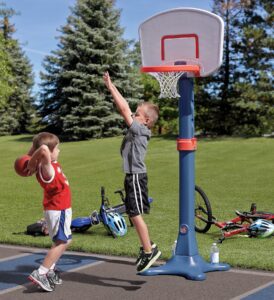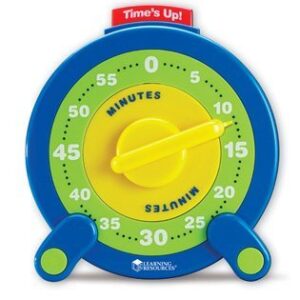Homework, HELP!
Most parents know the feeling. You’re unloading the car, or scouring the pantry for the kids’ afternoon snack, or answering an email, and you hear it—
“MoOooOOooom? Can you help me with my homework?”
Your vision darkens. The world goes silent. You brace yourself for the inevitable deep sighs, the eye rolls, the “that’s-not-how-my-teacher-does-its” and the tearful slamming of a social studies textbook that are about to define the measly little hour you had at home between carpool and karate.
 Not every parent will have a child who struggles with homework, and to you we say: get outta here. Quit bragging. This isn’t about you.
Not every parent will have a child who struggles with homework, and to you we say: get outta here. Quit bragging. This isn’t about you.
If, however, you are a parent who finds herself white-knuckling the steering wheel on the drive home, bracing yourself for the inescapable knock-down-drag-out that will ensue the minute the pencil hits the paper: welcome. Solidarity, sister.
Below, we share tips on how to make the homework experience more enjoyable tolerable for everyone.
 1. Banish the iPhone
1. Banish the iPhone
Nothing, and I do mean nothing, does more to lengthen a study session than distractions of the virtual variety. Limit the amount of time your child spends on their phone or tablet by using it as a reward. For example—for every thirty minutes of homework done, the student gets 10 minutes of screen time. Aside from being a motivator for actually putting the time in, your child will get his or her homework done faster without the temptation of going up a level in Candy Crush or contributing a meme to their 30-person group text.
And, Parents, stay strong. When they say that they need the phone to look up a vocabulary word, hand them a dictionary. If they need to type something up in Word, turn off the wifi.
For the tech-savvy kid, there are many great apps to assist with time management. One of my favorites is called Forest: Stay focused, be present, found here: The app plants a tree when you set the timer (you can adjust the time as needed). For every minute you stay off your phone, your tree grows. If you access the phone to do anything other than look at your tree, the tree withers. At the end of the time, not only do you have a finished worksheet, but you grew a tree! It’s a great game to play with students struggling to keep their hands and eyes off their screens.
 2. Different strokes, different folks
2. Different strokes, different folks
What works for you may not work for your child. Just because you liked to study locked in your room sitting at your desk doesn’t mean that your child shouldn’t do it outside under a tree or at the kitchen table. Just because you liked it dead quiet doesn’t mean that it doesn’t help your child to have some inane pop song playing softly in the background. Just because you may not agree with the method your child is using to solve fractions doesn’t mean that the math teacher is wrong. As easy as it would be for our children to be beautiful little cookie cutter replicas of us, they aren’t. And that’s a blessing, though it doesn’t always make homework time fun. If your child wants to do her homework sprawled out on your pool table, blasting classical music, dressed in an old Halloween costume, save yourself the drama and smile politely. It’s not wrong it’s just…different.
 3. Work first, play later
3. Work first, play later
Try getting your kid to come back inside to do his Spelling workbook when the rest of his friends are playing basketball in the street. It’s like trying to row with one oar.
While this may seem heartless when the sun is shining and the neighbors are calling, it sets the stage for creating the admirable habit of taking care of responsibilities before indulging in free time. Play time is more fun anyway without the threat of homework looming overhead.
4. Pace yourself!
Research shows that taking intermittent breaks actually makes us more productive. I would say for the average tween boy, taking breaks increases productivity 10 fold! Grab a whiteboard. Have your kids write in what they’re going to do in order of importance. Seeing what they have to complete gives them control of the process. Have a timer, so he knows how long he’s spent on each topic. If you watch your child wrestle with science for 45 minutes, it may be time to switch to one of the other assignments on the whiteboard. Teachers tend to give grace when they can see that your child has put the effort in on the homework, even if it isn’t all the way done. Having a whiteboard helps students keep on track with long projects as well, since, seeing it on the board, glaring at them from the kitchen table is a good way to keep it fresh in their minds. Plus, boy does it feel good to erase it!
 5. When the going gets tough, the tough get a tutor
5. When the going gets tough, the tough get a tutor
There is no shame in summoning reinforcements. “Tutor” is not the dirty word it used to be and calling one doesn’t mean you are failing your child or that your child is not a good student. It means that, for the sake of your sanity and your child’s understanding of a concept, you are leaving it to the professionals. If you’re finding that more than three times a week you are squaring off with your child over homework, you may realize that hiring someone whose job it is literally to help your kid finish the homework without killing him is the way to go.
You don’t have to be the parent secretly googling how to explain slope intercept form in the bathroom. You don’t have to be on the brink of tears each afternoon you get pushback when you ask if your son has studied for the science test yet. When kids are frustrated by the homework, they’ll often blame whoever is close by and (spoiler alert!) it’s usually you. With a tutor, students tend to be less likely to throw tantrums and more likely to wait patiently for concepts to be explained.
If you need a tutor, ICS has a great list of teachers and staff members who tutor after school. Their information is below:
Sarah Calhoun sarah.calhoun@icsva.org (ICS 4th Grade Teacher)
Nate Fox natefox7@gmail.com (ICS Alumnus, Senior @ West Springfield HS)
Kathy Holley kathyholley1@gmail.com (Former ICS parent and staff member)
Erika McKellop Erika.mckellop@icsva.org (ICS Upper School Librarian)
Calla Nyboer calla.nyboer@icsva.org (ICS 6th Grade Teacher)
Taylor Reagan taylor.reagan@icsva.org (ICS 6th Grade Teacher)
If none of the above tips work for you, Scholastic has more! Find them here.
What are some great homework tips that work for your family? Email your ideas to be featured in our next post!
Compiled by Librarians Erika McKellop & Kristin Griffin
